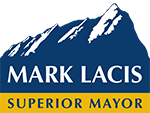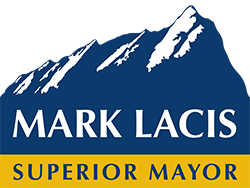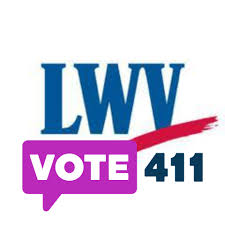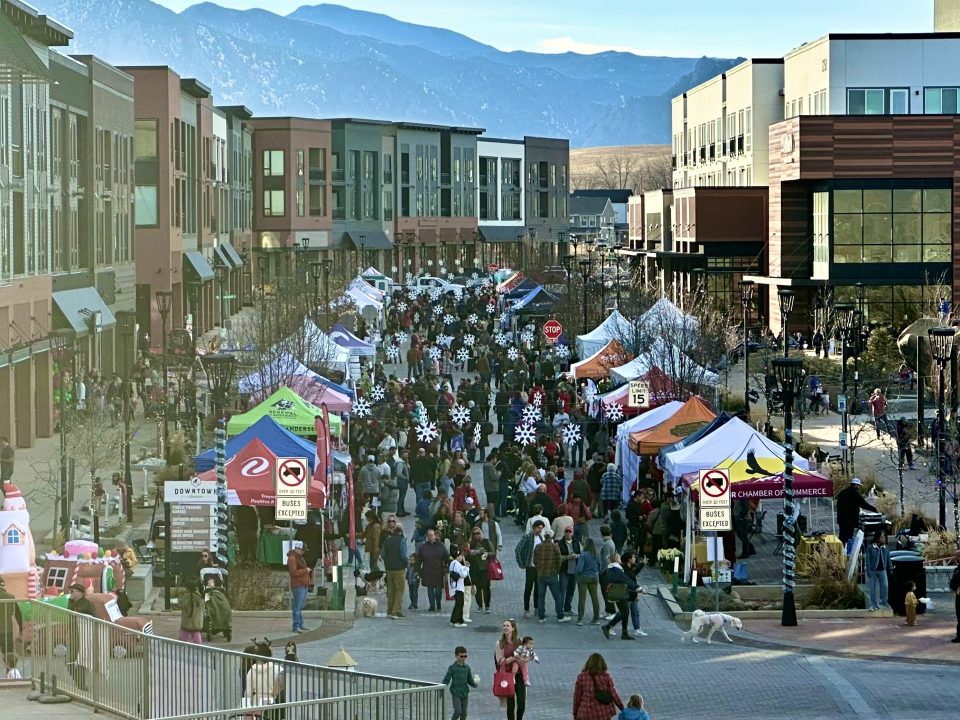Voter Guide

September 2022
September 16, 2022
October 2022
October 18, 2022CANDIDATE FORUM
The League of Women Voters hosted a candidate forum on October 11. Here’s a link to the candidate forum (the video is embedded below). I have also annotated the specific questions asked with time-stamps to make it easier to navigate this 90-minute forum. The questions were as follows:
- Opening Statements (5:30)
- Question 1: Describe your position on how the Town should have, or should be, handling the Marshall Fire aftermath. What if any building codes should be implemented, such as fire-resistant material requirements and Wildland Urban Interface code and permitting requirements? (13:04)
- Question 2: What additional efforts would you propose in rebuilding communities directly impacted by the Marshall Fire? Should there be a moratorium on new development while Superior residents and businesses rebuild? What will you do specifically to protect the residents from the toxic residues that may still be present in our Town? (22:16)
- Question 3: What is your vision for Downtown Superior? What kind of growth do you foresee? Does your vision include the Life Sciences/Coal Creek Innovation Park Campus, why or why not? (31:07)
- Question 4: Please describe your priorities, how you would balance new (what one questioner described was “exploding”) residential and commercial development in Superior, how much growth is enough? (39:36)
- Question 5: In spite of the Town having an ordinance in support of affordable housing, none has been created. Should the Town of Superior promote or subsidize low-income or affordable housing given the pressure put on Town resources by the Marshall Fire, a decreasing commercial tax-base, and the significant back-log of capital projects. What affordable housing, if any, would you support? (47:46)
- Question 6: What is your stance on the Rocky Mountain Metropolitan Airport? What actions can the Town take to protect Superior from the constant noise pollution? What questioner even cited 5am in morning/11pm at night. How can the Town protect Superior from health risks and pollution from the airport? Rather than dismiss the airport conflict and cite limited options, because RMMA doesn’t directly answer to us, what avenues would you explore to help the growing area of Superior that is becoming blighted from exposure to near constant high-decibel noise, health risks, problems from leaded airplane fuel, and potential safety risks? (56:32)
- Question 7: Do you support the gun violence prevention ordinances passed by the Trustees in special session in June of this year? Do you think there was sufficient opportunity for public input? Do you support fighting the lawsuit brought against the Town of Superior to these ordinances and work to make sure these ordinances are upheld? (1:09:10)
- Question 8: Do you anticipate having to recuse yourself from any topic that could come before the Town? (1:17:26)
- Question 9: Should you be elected, how many average hours per month do you have available to spend on your duties and meeting with constituents? Are you going to be able to commit time to this position? (1:19:35)
- Closing Statements (1:23:15)
VOTER GUIDE
The League of Women Voters also published a Vote411 Guide that included a 5 question survey of the Trustee candidates. The questions focused on each candidates’ priorities for the first 100 days; position on gun safety laws; the Life Sciences project in Downtown Superior; the Sales & Use Tax Ballot Measure; and lessons learned from the Marshall Fire.
I have organized the responses by question to make it more user friendly. One candidate has yet to respond and is not included below. The LOWV Voter Guide is available here: https://www.vote411.org/.
What are your top priorities for the office and how would you integrate them in your first 100 days?
Mike Foster: My top priorities are environment, equity and economic development. One of the issues that will likely come before the new Board will be the development requests for Superior Market Place. Since many of our residents are still dealing with rebuilding and are not yet back in their homes, I would seek to pause that request for approximately 12 months, in order to give residents time to finish rebuilding before asking them to engage in providing community input on a large redevelopment.
Jenn Kaaoush: My top priority is fire recovery, specifically, removing obstacles, expediting permits and securing long-term resources. I will arrive as a Trustee with a full year of working on these issues and look forward to magnifying effected resident needs. I will also be looking at the Town’s financial scope over the next 3-5 years and taking action to ensure that we sustain a reasonable level of stability over the course of this recovery. Additionally, our business community needs a lot of attention right now. As developments that sat on hold through Covid and the Marshall Fire are coming to life again, it is important that we are create the attraction and provide the support to bring the businesses to town that residents want to see while also supporting those businesses that we already love.
Bob McCool: Marshall Fire – Get everyone back home and protect our future. Planning through community engagement for the Northwest area. Comprehensive review of our processes to improve community awareness and engagement.Having lost our 1900 home, I remain committed to helping residents return home by helping neighbors navigate the process and supporting staff to make it happen. Our NW area needed planning before the Marshall Fire and it’s time to reinvigorate the work we did in 2017-2018 to ensure this area remains a wonderful place to live as well as a strong economic engine for our town. The key to all of this is meaningful community engagement. Our residents have shown they are interested in Superior’s success, understand the challenges we face and want to be a part of the solution.
Stephanie Miller: First and foremost, because the trustee position serves ALL of Superior, I want to meet with residents to become familiar with the issues facing different areas of town. We are, of course, One Community. But we may not all face the same challenges. Second, as the former President of the Superior Chamber, I think supporting local businesses (and therefore our tax base) is essential. They suffered greatly after COVID and the Marshall Fire. So, I want to focus on creative solutions to help them bounce back. Continued recovery efforts after the Marshall Fire will also be a top priority so we can get our neighbors back in their homes and our town back on its feet. And finally, collaborate with residents and developers to ensure the Downtown vision is successfully brought to life.
Stephanie Schader: Marshall Fire recovery, smart economic development, fiscal soundness, and service. I would improve building permit transparency and education for residents. I would establish a committee update the Town’s comprehensive plan. In my view, Superior has looked at development largely as a series of independent developments, and as a result it feels disconnected. Future developments should be considered in the context of a plan that promotes our vision, goals, and policies. I would work to staff to improve my understanding of current and past economic development efforts and identify new opportunities. We need a to diversify the tax base and financial stability. Regarding service, Town staff and contractors should be helpful and efficient.
Neal Shah: I have three primary areas of focus for my term: Rebuilding, Economic Vitality, and Community Resiliency. We have an obligation to continue removing obstacles for homeowners rebuilding. I plan to continue asking for more transparency on why permitting is taking longer than expected and what we can be doing differently. When it comes to the town economics, we are hurting and need aggressive planning for when big box stores may leave. I want to see aggressive economic development incentives to lure the newest businesses here. Finally, our community matters: we need a paper newsletter, safer walking routes to downtown, and increased awareness of the Community Center activities. We can make significant progress on all this in 100 days and while staying focused on longer term goals.
How should the Superior Board of Trustees proceed regarding recently passed gun safety laws in light of the recent federal court temporary restraining orders on some of the firearms restrictions?
Mike Foster: We need to continue to find ways to keep our communities safe from gun violence. At the moment, this issue is making its way through the court system. Once the court rules, we can explore options on a potential pathway forward.
Jenn Kaaoush: As a Veteran, I support gun safety laws and do not think individual citizens should have access to fully or semi-automatic weapons. I consider the 2nd Amendments reference to a well-regulated militia to be our National Guard. If you want to use those weapons, join the Guard. Users of firearms should be licensed and required to meet annual training on safety, storage and use. As a soldier trained on when and how to engage, my weapon was released from a locked armory only when I was training or deployed. Casual weapon use is not a safe standard. I also commit to handling any ordinance with a reach this broad with communication, planning and more understanding by the community. I think the litigation could have been avoided had the Town done this better.
Bob McCool: Since this is an active lawsuit and I serve as a representative of our Town on the Planning Commission I have been asked to refrain from discussing this specific topic.
Stephanie Miller: I fully support the common sense gun safety laws that were passed to keep our community safe. When the second amendment was written it was referring to muskets, not machine guns. A weapon designed for the sole purpose of inflicting as many casualties as possible in a short amount of time. In an age where you can’t go to the grocery store, a movie theater, or even grade school without the fear of another mass shooting, it’s clear that something needs to change. So, while I completely agree with the right to bear arms, I don’t agree that citizens should be walking around with assault rifles.
Stephanie Schader: I am in favor of reasonable restrictions on firearms. Background checks; registration requirements; and prohibition of automatic weapons and modifications that make guns function like automatic weapons are all reasonable in my view. Under past precedent, such restrictions were permitted. The Bruen decision has changed that. It isn’t clear what will and what won’t be considered acceptable under that decision. Despite the uncertainty, I think the town should continue to fight for the ordinance.
Neal Shah: Superior passed Ordinance O-9 before the Supreme court released its Bruen ruling. Given the uncertainty of the Superior ordinance in light of that ruling, the Boulder District Court put a temporary restraining order in place in late July to allow the parties time for legal arguments. I fully support Superior’s ongoing effort to continue to litigate in favor of the ordinance. We are not doing this alone as Louisville, Lafayette, Boulder, and Boulder County are all part of the suit and many of us see ordinances such as this as important for the safety of our residents.
Jason Serbu: I think Superior’s current approach to consolidate the four separate cases against Boulder, Boulder County, Louisville, and Superior is the appropriate next step. Doing so will enable us to craft a stronger regional response to the issue and to ensure that we have a comprehensive, constitutionally grounded approach to gun control that keeps assault styled weapons meant only for the battlefield on the battlefield and not in our neighborhoods.
Do you support the life sciences development approved for the Superior Town Center? Why or why not?
Mike Foster: I support the need for the Town to diversify its tax base in order to be financially resilient. We need a thriving and vibrant downtown; a place for events and gatherings for breakfast, lunch and dinner. Approximately 70% of sales tax comes from a few large businesses so having a more diverse tax base is a must if we are to financially survive future natural disasters. It also supports a thriving community in which to live, work and play. This development will last for 50 years or more, and it is imperative that sustainability be incorporated into the design and construction to advance the Town’s target of reducing carbon emissions 63% by 2030. We cannot make progress on our Sustainability Goals if developments are not doing their part to support local priorities. We must do better.
Jenn Kaaoush: I already voted “no” twice on this project as a Planning Commissioner. The residents have been clear that this development is not what they want, specifically those in the Downtown Superior area. Personally, I made specific requests to the developer during public meetings to adjust the mass of the buildings and the lack of commercial retail built into the project. The developer did not incorporate those suggestions into their final project presentation and I find it to be a loss of the potential of what it could have been had they taken the suggestions of the Planning Commission, Town Board and the many residents who spent time reviewing and commenting on this plan.
Bob McCool: My response on the Planning Commission reflects my frustration that developers repeatedly push for more than the approved Preliminary Development Plan when they come forward with final proposals. I rarely am in support of that approach. I do not agree with the development as it was approved by our Town Board with the changes requested by the developer. In my opinion, the design overwhelms Downtown and detracts from the area.
Stephanie Miller: I think the developer needs to adhere to the design guidelines so the campus dovetails seamlessly with the rest of Downtown. But, that said, I do support bringing Life Sciences to Superior. The “Work” component of the original “Live Work Play” vision for Downtown is essential to the project’s long-term viability. It’s necessary to attract the types of businesses we all want to see, and it’s necessary to sustain the restaurants and shops once they’re here. Without it, retailers and eateries will struggle and we’ll likely see mass vacancies (like in the Marketplace). Despite many shifting to a work-from-home model since COVID, Life Sciences still necessitate workers going to the office. And those workers are well-paid and highly educated. I think that’s a big win for our town.
Stephanie Schader: Not in its current form. Downtown Superior was to be a walkable downtown where folks could “live, work, and play”. The development is completely out of scale with the rest of downtown and doesn’t integrate well. The development looks like a closed office campus, with buildings that by their sheer size would act as a curtain, hiding downtown from McCaslin, and hiding the views of the mountains and flatirons from downtown. I believe the developer can do better, and that if we work together, the town and the developer can both get a “win”.
Neal Shah: The community invested tremendous amounts of time and energy to develop the overarching plans for Downtown Superior and we are close to seeing it realized. The downtown core is currently under construction and large parts will be finalized in 2023. The Board heard and approved the Life Science Campus project in August. The key for me, and part of the reason I voted against the it, was that it deviated from the original concepts envisioned by the community. I do believe Downtown will benefit from an office environment that brings the downtown lunch crowd, but we also need activation of the area throughout the week and buildings that match the emerging character of Downtown. Fundamentally, the success of downtown is a shared goal for all of us.
Jason Serbu: As the co-author of the petition to revisit the approval of the life sciences development in Downtown Superior, I do not support the project in its currently proposed form. The buildings are simply too tall and will create a barrier at the gateway of the walkable, vibrant downtown center that many of us invested in. Additionally, these buildings do not reflect the design intent of the master plan for the downtown area that all other developers have been held accountable to. While I’m not opposed to office space, these buildings need to scale well with the surrounding development and include the design elements that will make it a cohesive part of downtown. This proposed “life sciences campus” does not hit that mark.
What lessons were learned from the Marshall fire? How would you proceed as trustee to implement the changes needed to help prevent a future disaster from fire?
Mike Foster: Overall, I think the Town has done a great job responding to the fire and helping residents rebuild. Has it gone perfectly, no, but given the circumstances, we have stepped up as a community to support one another and are doing a lot of incredible work. One of the important lessons learned is that the Town needs to evaluate existing PDs to see if adjustments are needed based on the current science and understanding of wildfires. Rebuilding without incorporating the latest understanding of wildfire risk into the PDs will do nothing to prepare the Town for the next natural disaster and will continue to put people and the broader community at risk. We need to work with others to invest in wildfire mitigation on the plains. Supporting county ballot item 1A this November will help.
Jenn Kaaoush: We learned that massive turns of life can happen on a calm Thursday afternoon. We learned how to read homeowners insurance policies. We learned that media can be our friend and our neighbors can be our family. We learned that we were unprepared and that our alert systems need work. We learned that the Juniper trees and cedar fences are not our friends. We learned that this could likely happen again. We learned that wind can be extremely triggering. We also learned that we have so much more to learn. I will continue my work with organizations on fire recovery and work to implement proven models of preparedness. I will also continue to work to expand financial resources and grants available to invest in our community with the goal of preparing us for the possibility of a repeat occurrence.
Bob McCool: First, this was unprecedented, a perfect storm of intense wind and a fire that moved directly towards the Sagamore subdivision at such speed the initial focus had to be life safety. Answering the question about the changes needed is a necessary and ongoing conversation with the experts we depend on in our community. All of us have a heightened awareness and intense need to figure out prevention and protection going forward and having lost our home within the first 90 minutes you can be assured it’s high on my list.
Stephanie Miller: The Marshall Fire was an unimaginable disaster and I applaud our town officials for the countless hours they’ve dedicated to navigating the tragedy and its aftermath. I think the biggest lesson learned was ensuring adequate communication channels (and languages) so residents and workers know exactly what’s happening and how to escape. One aspect of that escape I want to examine though is the evacuation routes. It seemed during the fire that getting out was slow moving and some areas only had one way to flee. Luckily, those ways weren’t blocked. But, if they had been, I fear we would have seen more casualties as a result. So, ensuring everyone has multiple exit routes during a disaster is crucial.
Stephanie Schader: I think we learned that the reverse 911, and other notification methods fell short. We also learned that defensible space, and resilient building methods need to be utilized especially for property bordering open space. The open space needs to be managed better to reduce the available fuel for wildfires. As a trustee, I would look for ways to incentivize resiliency, especially for properties along near the wild land urban interface. This could include building materials, landscaping, and the like. With respect to the warning systems, I believe much work is already underway to improve coordination between the disparate systems, and to ensure all residents receive notifications.
Neal Shah: Unfortunately, there is no single answer on preventing a tragedy like the Marshall Fire from occurring again. As climate change driven extreme weather events occur more frequently, our ability to respond is key. Given the proximity of open space to Superior’s borders, no portion can just be left “untouched.” A combination of mowing, grazing, and vegetation removal must be considered to provide a buffer. But, as we’ve moved forward to help our community rebuild, the work is not remotely completed. Going forward, we still have work to do with fencing materials, emergency notifications, evacuations for those without vehicles, and how to better coordinate with the many jurisdictional organizations that play a roll in the response.
Jason Serbu: As someone whose home was impacted by the Marshall fire, the biggest lesson I learned was that we have a wonderfully supportive community! From our neighbors to the current Board of Trustees, we’ve had a tremendous outpouring of assistance, and I am grateful. Beyond that, I think we as a community also learned that we must be more mindful of preventative measures. The fire ripped through our neighborhoods from adjacent open spaces where no fire prevention barriers were in place. My goal is to find creative solutions to put these barriers in place in an environmentally focused way. For example, can we place gravel on a swath of open space and use that area for a field of solar panels that can help us power our community with green energy? I would create a task force to explore this and other creative ideas to be implemented.
Why do you support or oppose the sales and use tax ballot measure?
Mike Foster: I support the sales tax ballot measure for the following four reasons: 1) This is not a new tax, it’s renewing an existing sales tax, and will sunset in 10 years 2) This sales tax will generate approximately $800,000 per year and will go towards fire related expenses. 3) The Town’s financial reserves are at the lowest they’ve been and are forecasted to stay that way if nothing is done about it and this will help to ensure that the Town stays financially healthy. 4) Superior will continue to have the lowest sales tax in Boulder County.
Jenn Kaaoush: As part of supporting the fiscal foundation of recovery, it makes sense to extend the 0.16 sales tax expected to sunset in December 2022. While it will only partially meet the needs of the deficit created by the Marshall Fire, it will still provide a low and generally undisruptive, shared cost to our entire community, lessening the steepness of the climb. In conjunction with the extension, I would require strictly, defined limits of the use of any revenues to exclusively Marshall Fire recovery use paired with transparent, oversight commitments from the Town to its residents. In this financially volatile time, this is a big ask and if the residents give the ok, those funds should be assigned definitively and respected as a gracious, community effort to recover from this disaster together.
Bob McCool: I am in support of the 0.16% Tax Extension that our Town Board unanimously approved to put before the voters in our community. This is an opportunity that I expect few will oppose to dedicate funds to help our Town with the expenses related to the Marshall Fire and our community’s long term recovery.
Stephanie Miller: I fully support the sales tax ballot measure (which is NOT a tax increase, but rather replaces an existing sales tax that’s sunsetting this year). Despite trimming the budget by millions immediately after the Marshall Fire, there were many more millions in expenditures to help our town recover. Replacing the sunsetting sales tax with another will only cost shoppers mere fractions of a cent on the dollar ($0.16 on a $100 purchase, to be exact), but it will raise hundreds of thousands to offset the cost of the Marshall Fire recovery. It’s also important to note that 70% of Superior’s sales tax revenue comes from people residing outside of town. And, even by replacing the existing sunsetting tax with another, Superior still has a lower sales tax than our neighboring Boulder County cities.
Stephanie Schader: I support this ballot measure. The town of Superior’s budget was significantly impacted by both expenses for fire fighting and recovery, as well as lost sales tax revenue. The extension is limited to ten years, and the money raised can only pay for town expenses arising from the Marshall Fire.
Neal Shah: I support the extension (approved in 2003), and hope voters will too. Going forward, it will be repurposed to help offset expenses incurred from the Marshall Fire. The Town has incurred significant expenses both directly and indirectly from the fire because of focused efforts on fire response. Some will be covered by FEMA, but many will not. The largest item is the ~$5M we have invested in the GAC system. This was put in place for our water treatment facility so our water tastes more like it used to. It is important to realize that about 70% of sales taxes paid in Superior are by customers who live elsewhere. I fully support the extension of this tax as it will not increase the overall tax rate and helps to backfill the many expenses our community has borne from the fire response.
Jason Serbu: I support the extension of the sales and use tax measure as we need to bring in revenue to offset the unplanned for and significant costs resulting from the Marshall fire. These critical infrastructure projects could not be avoided, and they are causing a cash crunch on our town’s operating budget. Extending the already in place sales and use tax will help us alleviate these near-term budget issues.
Biographical Information:
Mike Foster:
Background: My name is Mike Foster and I’m running for Superior Board of Trustees because I want to make a difference in our community while continuing to ensure that Superior is a great place to live, work and play!
Website: http://www.mikeforsuperior.com
Campaign Phone: 4082029983
Campaign Email: mike@mikeforsuperior.com
Jenn Kaaoush:
Background: I am an Army Veteran, and served as a Diplomat at US Embassies before choosing Superior as my home. I have also served as an Economic Development Commissioner, PTA President and Parks and Recs Advisor before my appointment to the Planning Commission. As the Co-Lead for Superior Rising and through my work as a Commissioner, I have cultivated relationships with the regional, state and national community. I am well prepared and have a track record of community engagement, support and advocacy.
Website: http://jennforsuperior.com
Campaign Phone: 720-592-6309
Campaign Email: jenn.kaaoush@gmail.com
Facebook: http://www.facebook.com/kaaoushforsuperior
Campaign Twitter Handle: @jkaaoush
Stephanie Miller:
Background: Former President of the Superior Chamber of Commerce, serving on the Chamber’s Board of Directors for 9 years until July 2022.
Website: http://www.StephanieMillerForSuperior.com/
Campaign Email: StephanieMillerForSuperior@gmail.com
Facebook: http://www.facebook.com/StephanieMillerForSuperior
Stephanie Schader:
Background: I have lived in Superior for nearly 3 years, and am a Colorado native. Professionally I have experience in consumer, commercial, housing, investment and public finance. I have worked in both the private and public sectors, including owning my own business.
Antecedentes (Background): Served as HOA and Master HOA President, volunteering, organizing
Website: http://www.stephanieforsuperior.com
Campaign Phone: 3038757100
Campaign Email: stephschader@gmail.com
Facebook: http://www.facebook.com/stephanieforsuperior
Neal Shah:
Background: My last four years on the board have been an incredible journey. The board has had to face down a firm that wanted to frack under Rocky Flats, the Pandemic, and now the Marshall Fire aftermath. In all instances, the actions by the Superior Town Board have made me proud to sit beside my colleagues and make the decisions we have. Going forward, there is a still a lot of work to be done to get our displaced residents back home and also ensuring our community stays strong. I’m hopeful that if given the chance to serve again, we will continue to make this an amazing place to live.
Antecedentes (Background): Neal was elected in 2018 and is also the Chief Financial Officer of a publicy traded company
Website: http://voteforneal.com
Campaign Phone: 720-940-7826
Campaign Email: nealsshah@gmail.com
Facebook: http://www.facebook.com/trustee.shah/
Jason Serbu:
Website: https://jasonserbu.com/





